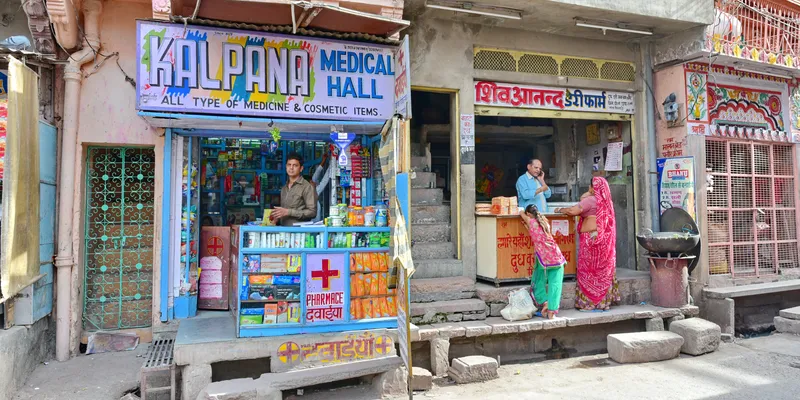How this initiative wants to help small-town startups go big
In its third year, Highway to a Hundred Unicorns, an initiative by Microsoft for Startups, is working towards empowering the startup ecosystem of Tier II cities.
It was at one of India’s largest conferences for internet entrepreneurs, India Internet Day, that the seeds of Microsoft for Startups’ initiative, Highway to a Hundred Unicorns, were sown. “In April of 2019 when we had the India Internet Day, at that time we had 30 unicorns or a little less, I think 25 unicorns at the time, and the goal for India was to have 100 unicorns by 2025. What was really interesting was that most of these unicorns came in from Bangalore, Bombay, Delhi, a couple maybe from Pune and Madras. There was no representation on this list from founders coming in from these smaller emerging markets in India,” Lathika Pai, Microsoft’s Country Head, Venture Capital and Private Equity Partnerships tells Yourstory Founder and CEO, Shradha Sharma.
The absence of Tier II startups from the list was despite the fact that several states had been investing “heavily” in startups and the local ecosystems, she adds.
It was to empower the startup ecosystems in the smaller towns that Highway for a Hundred Unicorns was launched in September of 2019. The initiative works closely with local governments to strengthen the startup ecosystem in each state. It aims to help entrepreneurs build and scale their companies by leveraging Microsoft’s cloud platform, enterprise sales team and partner ecosystem to reach customers.

The initiative was launched to empower the startup ecosystems in smaller towns. (Representational image)
Lathika explains, “We said let's go to every state that is investing in startups and as Microsoft our focus has always been not (to) go wide, but instead go deep with a few. And so what we decided to do is say that in addition to the work that I do and what the rest of the startup team does in the Tier I cities, why don't we go to emerging markets and find these startups?”
The original plan was to take the programme to 12 states, but owing to the coronavirus pandemic the initiative has so far been launched in the six states of Gujarat, Rajasthan, Kerala, Maharashtra (minus Mumbai), Goa and Telangana.
“What was fascinating was that we found some phenomenal startups coming in from these states. And the one thing that struck me was that almost all of the startups were bootstrapped and they were already looking at profitability, the positive unit economics, which is now the mantra of most VCs (Venture Capitalists). They already had it because they didn't have the money, so that was one very clear outcome that we saw from the startups,” says Lathika.
India now has over 40 unicorns (startups with 1 billion dollar valuations) and except Bengaluru-based fintech startup Razorpay, which was initially started in Jaipur, none of the billion-dollar startups are known to have small town origins.
Highway to a Hundred Unicorns hopes to change this skewed ratio and contribute in empowering the startup ecosystems of Tier II cities to have more representation in the elite unicorn club.

Lathika Pai, Microsoft’s Country Head, Venture Capital and Private Equity Partnerships
“So the point of the ‘Highway’ is to say, why don't we help support these startups, what is the kind of help they need? They need exposure to technology, they need to be put on the radar of investors and they need help to scale.
“Now what the pandemic has brought is the fact that everyone can be anywhere and you can support them anytime, so what we had anyway planned as a medium of engagement with the startups, the pandemic allowed us to do it,” says Lathika.
The selection
The selection happens through ‘Emerge-X’, a competition for startups where the top tech solutions win Azure (Microsoft’s cloud computing service) credits, along with a host of business and tech benefits. The top three startups from each state get access to a year-long mentorship programme along with a two-day founder bootcamp. Ecosystem bodies such as the Global Entrepreneurship Network, TiE, Headstart, NASSCOM, Startup Grind, along with prominent investors and entrepreneurs actively engage with the innovators through these competitions.
Jaipur-based Wholesalebox and Kochi-based Rapidor are among the participating startups to have received funding from participating investors.
Blurring borders
Last year, even as the pandemic raged on, the Highway to a Hundred Unicorns initiative went beyond India and extended to Asia Pacific, in a bid to strengthen the region’s startup ecosystem.
Besides India, the programme now covers 16 countries -- Bangladesh, Bhutan, Brunei, Cambodia, Indonesia, Laos, Malaysia, Maldives, Myanmar, Nepal, New Zealand, Philippines, Sri Lanka, Singapore, Thailand, and Vietnam.
“We landed up engaging with nearly 70 ecosystem players that included accelerators incubators governments, government officials. This (programme) is by nomination, so people would nominate startups, we had about 300-plus,” shares Lathika. From the 300-plus nominations, 79 startups across these 16 countries were selected for the programme. The criteria for application was that startups needed to have revenue-generating B2B (business-to-business) operations with product-market fit, and at least 3-4 clients.
Expanding the programme has also meant that the alum can network cross-border and figure out ways to work together and help each other out.
Lathika speaks of one such instance where she connected two agritech alums of the programme -- Sri Lankan startup Agrithmics and Myanmar’s Village Link -- with Bengaluru-based spacetech startup Pixxel, which helps augment agricultural productivity through predictive insights from its satellite imagery. Lathika says, “I put these three together and they're talking. So that was the power of running this across Asia, and then the ability to connect, which the founders would have never known.” According to Lathika, the biggest ‘joy’ of the Highway to a Hundred Unicorns programme is the fact that it allows Microsoft to go into early emerging markets to spot promising startups and “start making winners, helping them scale, taking them global.”
Secret sauce to scale
Having been an entrepreneur herself and through her role at Microsoft, Lathika has closely understood what it takes for a startup to scale.
“One thing that I know even in my stint at being an entrepreneur is not to allow yourself to get scattered. You land up in a situation where you want to run after everything you want to do a land grab. Land grab doesn't take you too far.”
It is important to have not more than a couple of product market fit solutions and to go deep into building those out, rather than having multiple products and becoming scattered, she says.
Another critical aspect is to not chase funding and to know clearly why funds are being raised, as and when they are. Another big red flag is letting fundraising go to the head, she says.
“I personally made money when I didn't raise funds. When I was bootstrapped I was so broke that I had to be the wisest, smartest woman, that's when I made the most amount of money,”
Lathika shares adding that the importance of tenacity and being frugal can’t possibly be overemphasised.
Watch video:
One key area, not often talked about is the ability of the founder to get loyal people on board: “It's not necessarily getting the smartest and brightest on your team, but getting the ones who are loyal, who will be there through your good and bad times.”










